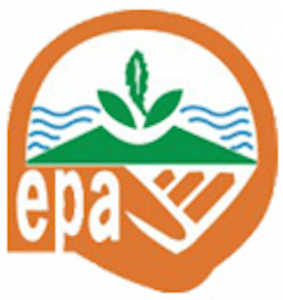EPA says it’ll ensure safety of Ghana nuclear power
 The Environmental Protection Agency (EPA) Wednesday gave a firm assurance that it is working with the Nuclear Regulatory Authority to ensure all safety procedures are followed for a successful national nuclear programme.
The Environmental Protection Agency (EPA) Wednesday gave a firm assurance that it is working with the Nuclear Regulatory Authority to ensure all safety procedures are followed for a successful national nuclear programme.
The nuclear power programme is seeking to build and manage a nuclear plant to produce affordable electricity in a safe and environmentally friendly manner for socio-economic development.
Mr Kwabena Badu-Yeboah, the Acting Director of Environmental Assessment and Management at the EPA, in an interview with the Ghana News Agency, said the Agency had been involved in the nuclear programme since its inception.
He said EPA actively participated in the phase one of the three-milestone approaches towards the introduction of nuclear power, which included pre-feasibility study, assessment of infrastructure, financing, technology to be deployed, safety, security, and siting.
Mr Badu-Yeboah recalled that as part of the phase one a team paid a working visit to South Africa for members to be abreast of the management of the nuclear power plant.
“We are prepared for the establishment of a nuclear plant and I can guarantee the safety and security of it. People should not entertain fears of accidents similar to the ones that occurred in some jurisdictions years ago. We are taking the utmost safety standards with all stakeholders, including the International Atomic Energy Agency, for a successful programme,” he said.
The EPA, he noted, had shared information on safety and was constantly working with the Nuclear Regulatory Authority (NRA) to ensure compliance.
Mr Badu-Yeboah said the EPA and the NRA would soon sign a memorandum of understanding (MoU) to provide a platform for a seamless relationship in the management and protection of the environment.
“Under the MoU, parties shall take critical look at the NRA Act 895, EPA Act 490, Act 917 and other laws related to the environment, radiation protection and their existing regulation, and identify all areas of co-operation,” he said.
The pact would collaborate the decommissioning of nuclear facilities as well as the review and approval of the decommissioning plan, where the EPA would, particularly, be interested in the final disposal, Mr Badu-Yeboah said.
The MoU would require the constituting of a seven-member committee to prepare specific environmental assessment procedures for a nuclear power plant, he said.
Mr Badu-Yeboah said nuclear energy was the cleanest source of power essential for sustainable economic growth and improved human welfare.
Comparing Nuclear energy and other power generation sources, he said nuclear energy provided access to reliable and affordable energy, mitigating the negative impacts of climate change.
“A nuclear reactor produces electricity in much the same way as other power plants. The chain reaction produces the energy, which turns water into steam. The pressure of the steam turns a generator, which produces electricity,” he explained.
Currently there are more than 400 commercial reactors operating in more than 30 countries including the United States of America, France, Russian, South Korea, Spain, United Arab Emirates and Sweden.
Source: GNA
